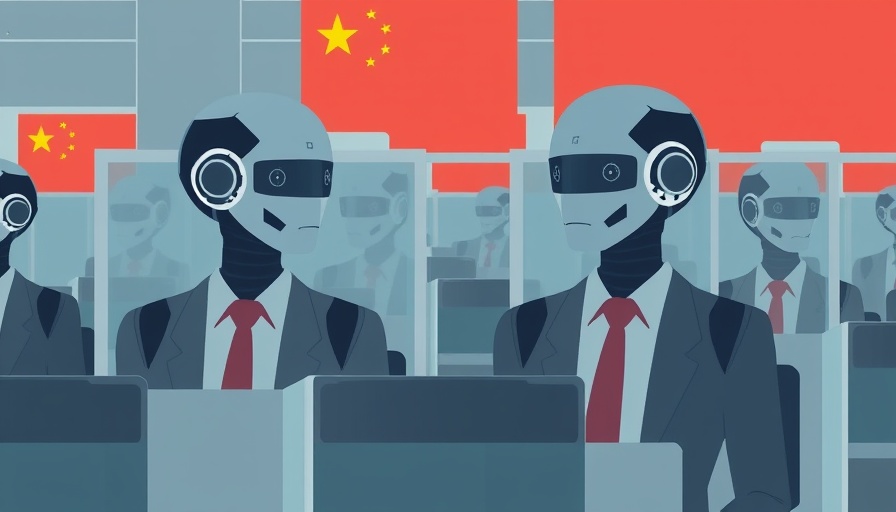
The Rise of AI Agents in China: What You Need to Know
In the rapidly evolving landscape of artificial intelligence, China is emerging as a leader, particularly with the recent surge in AI agents. These autonomous systems are designed to perform tasks for users, minimizing the need for direct interaction. This movement was largely ignited by Manus, a versatile AI agent that gained significant attention on social media after its launch in early March.
Many Chinese startups are now scrambling to develop their own versions of these AI agents, which can perform an array of functions—from answering emails to designing websites. This shift underscores a larger trend towards autonomous technologies that promise to transform how businesses operate and interact with technology.
Implications of AI Agents for Businesses
As companies integrate these AI agents into their operations, the potential benefits are substantial. Businesses could optimize resource allocation and enhance customer service by leveraging these intelligent assistants. Moreover, the automation of mundane tasks allows employees to focus on more strategic initiatives, ultimately fostering innovation and growth.
However, with great power comes great responsibility. Businesses must also navigate ethical considerations surrounding data privacy and the employment landscape as AI agents become part of the workforce.
GPS Alternatives: A Game Changer for Navigation
On another front, the development of alternatives to the traditional Global Positioning System (GPS) signals suggests significant advancements in navigation technology. A forthcoming satellite, part of the SpaceX Transporter 14 mission, is expected to test next-generation satnav technologies that could mitigate the security vulnerabilities associated with GPS.
The reliance on global navigation has never been more critical, especially in light of potential disruptions highlighted during conflicts such as the Russia-Ukraine war. Innovations like those pursued by Xona Space Systems aim to address these vulnerabilities by offering more reliable and secure positioning technology.
Future Trends in Navigation Technology
The implications of improved navigation systems extend beyond mere convenience. Enhanced accuracy and reliability in location tracking could facilitate innovations in logistics, travel, and even emergency response scenarios. Companies investing in these technologies now may position themselves strategically for future growth in a geolocation-dependent economy.
Potential Challenges and Considerations
While the promise of AI agents and new navigation alternatives is exciting, businesses must critically assess the challenges that might arise during implementation. These include the integration process, possible resistance from employees, and the need for comprehensive training to ensure effective deployment of AI agents in daily operations. Moreover, the ethical implications of reliance on AI, especially regarding data security and transparency, cannot be overlooked.
Conclusion: Embrace Innovation or Be Left Behind
In today's fast-paced technological environment, businesses must adapt to remain competitive. Embracing innovations such as AI agents and alternatives to GPS will not only enhance operational efficiency but also pave the way for new business models and improved customer experiences.
By understanding these emerging technologies and strategically implementing them, companies can ensure they are not just participants in the market but leaders in a changing landscape.
As we look to the future, it’s essential for businesses to act decisively—explore these advancements, assess their implications, and innovate to stay ahead in the competitive landscape.
 Add Row
Add Row  Add Element
Add Element 


 Add Row
Add Row  Add
Add 

Write A Comment